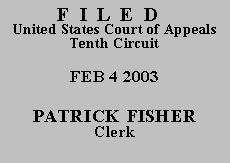

| UNITED STATES OF AMERICA,
v.
ERIC LEE STEFFAN |
|
Mr. Steffan pleaded guilty to conspiracy to possess with the intent to distribute 500 grams or more of a mixture or substance containing methamphetamine, in violation of 21 U.S.C. § 846. He was sentenced to 120 months' imprisonment, to be followed by a five-year term of supervised release. In this appeal, Mr. Steffan has responded to the Anders brief by filing a motion seeking different appellate counsel. In that motion, he argues that (1) his guilty plea was involuntary, (2) his sentence was improper, and (3) his counsel was ineffective. We deny his request for different appellate counsel, but consider his arguments in the context of this appeal.
We have fully examined the proceedings as required by Anders and conclude that the appeal is without merit. First, the record shows that Mr. Steffan's guilty plea was voluntary. We ordinarily review the question of whether the plea agreement was entered knowingly and voluntarily de novo, see United States v. Rubio, 231 F.3d 709, 712 (10th Cir. 2000), but review for plain error where a defendant does not move to withdraw his guilty plea before the district court. See Fed. R. Crim. P. 52(b); United States v. Vonn, 122 S. Ct. 1043, 1046 (2002); United States v. Schuh, 289 F.3d 968, 974 (7th Cir. 2002). The district court informed Mr. Steffan in open court of the nature of the charge and the maximum penalty (including the mandatory minimum which he received) and instructed him as to the rights he was giving up by pleading guilty. See Aplt. App. at 22-46 (transcript of plea hearing); see also Fed. R. Crim. P. 11 (necessary disclosures to insure a voluntary plea).
Second, we have held that a district court can impose any sentence within the applicable guideline range without entitling the defendant to withdraw the guilty plea. United States v. Siedlik, 231 F.3d 744, 749 (10th Cir. 2000). In this case, the district court's sentence was neither contrary to law nor an incorrect application of the sentencing guidelines; Mr. Steffan was sentenced at the low end of the guideline range, consistent with the mandatory minimum. Mr. Steffan appears to be claiming that the district court improperly relied upon "heresay [sic]" in its determination that Mr. Steffan had 500 grams or more of methamphetamine in his possession. Aplt. R. to Anders Br. at 1. To the extent Mr. Steffan is rasing an evidentiary objection to the court's finding, we reject his argument on the ground that the rules of evidence do not apply to sentencing hearings; the district court is allowed to consider all evidence that bears "a minimum indicia of reliability." United States v. Cruz Camacho, 137 F.3d 1220, 1225 (10th Cir. 1998). To the extent Mr. Steffan is arguing that his sentence is improper because "there was [sic] no drugs in [his] possession," Aplt. R. to Anders Br. at 1, we review for plain error as no objection was made at the district court. We note that a district court "may sentence the defendant based on the total amount of drugs 'which he reasonably foresaw or which fell within the scope of his particular agreement with the conspirators.'" Cruz Camacho, 137 F.3d at 1225 (quoting United States v. Ivy, 83 F.3d 1266, 1289 (10th Cir. 1996)). The PSR contains sufficient evidence of the requisite quantity of methamphetamine among Mr. Steffan and his co-conspirators.
As to Mr. Steffan's claims of ineffective assistance of counsel, we have held that "[i]neffective assistance of counsel claims should be brought in collateral proceedings, not on direct appeal. Such claims brought on direct appeal are presumptively dismissible, and virtually all will be dismissed." United States v. Galloway, 56 F.3d 1239, 1240 (10th Cir. 1995). We therefore decline to review the ineffective assistance claims here.
AFFIRMED. Counsel's request to withdraw is GRANTED.
Entered for the Court
Paul J. Kelly, Jr.
Circuit Judge
*. This order and judgment is not binding precedent, except under the doctrines of law of the case, res judicata, and collateral estoppel. This court generally disfavors the citation of orders and judgments; nevertheless, an order and judgment may be cited under the terms and conditions of 10th Cir. R. 36.3.
2. After examining the briefs and the appellate record, this three-judge panel has determined unanimously that oral argument would not be of material assistance in the determination of this appeal. See Fed. R. App. P. 34(a); 10th Cir. R. 34.1(G). The case is therefore ordered submitted without oral argument.